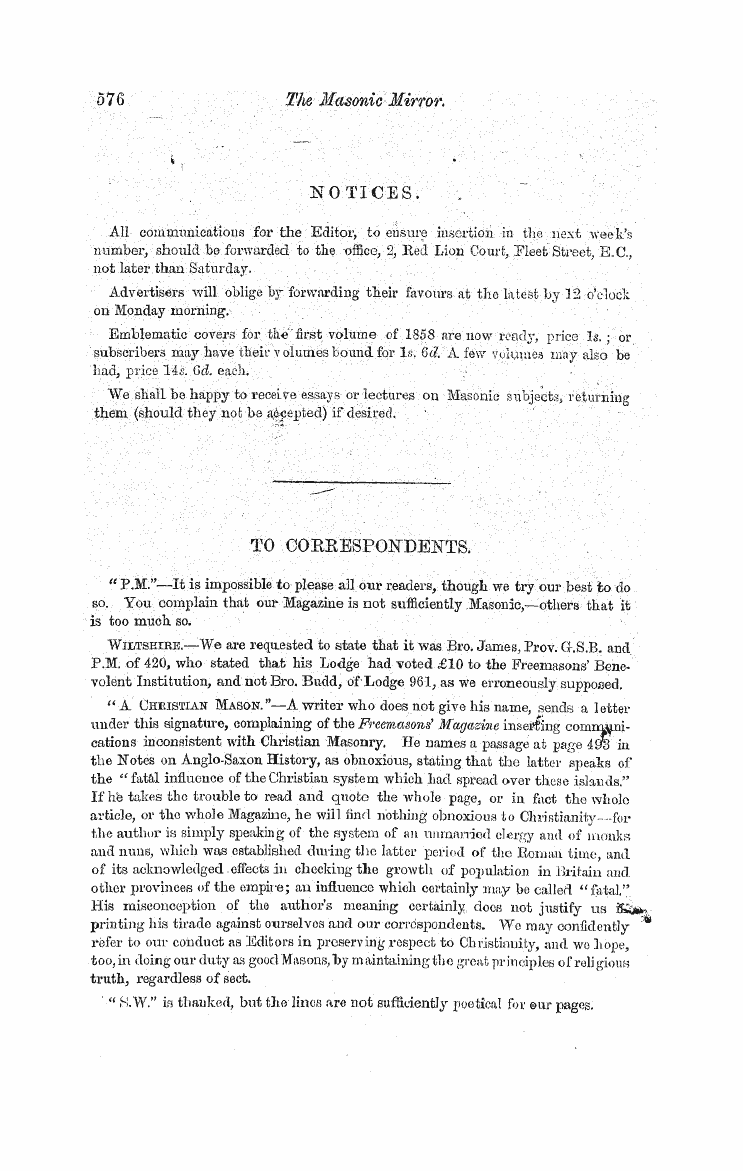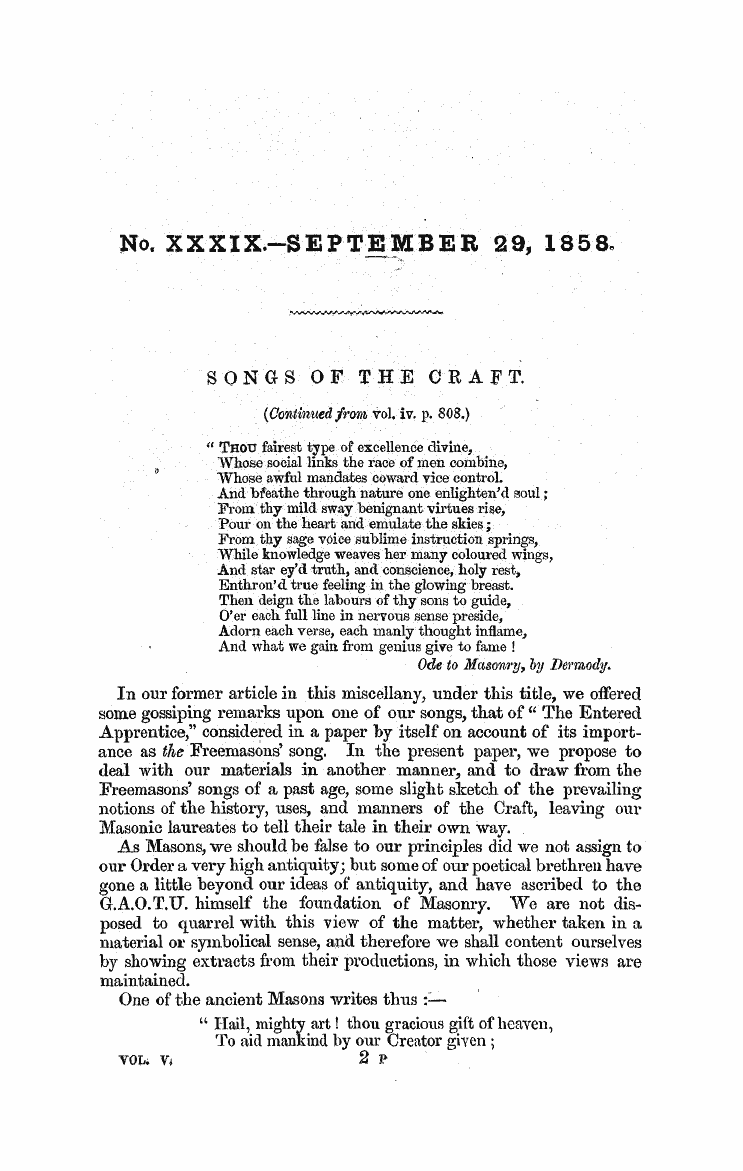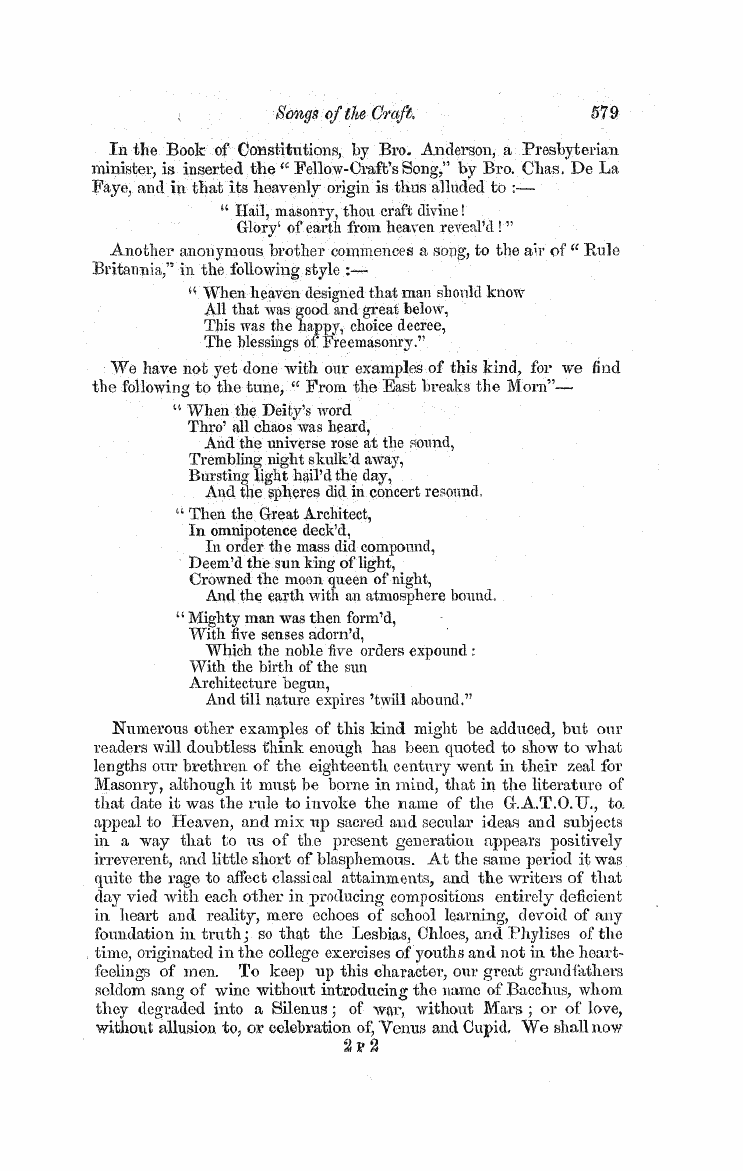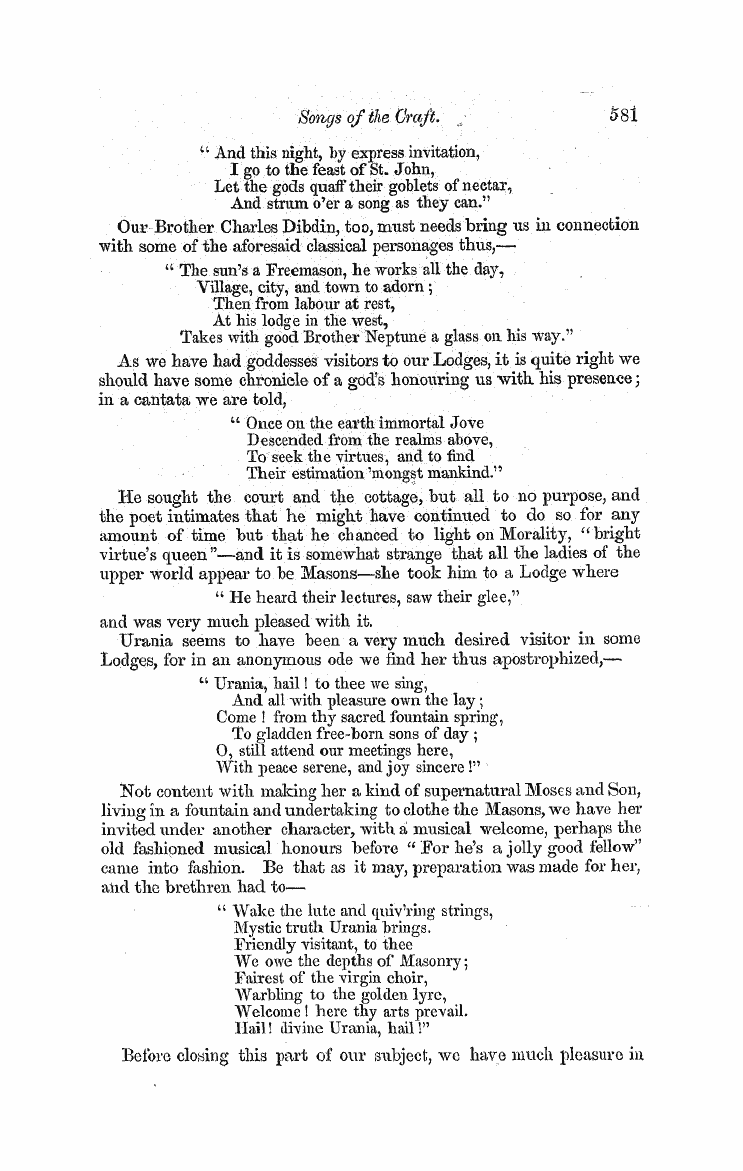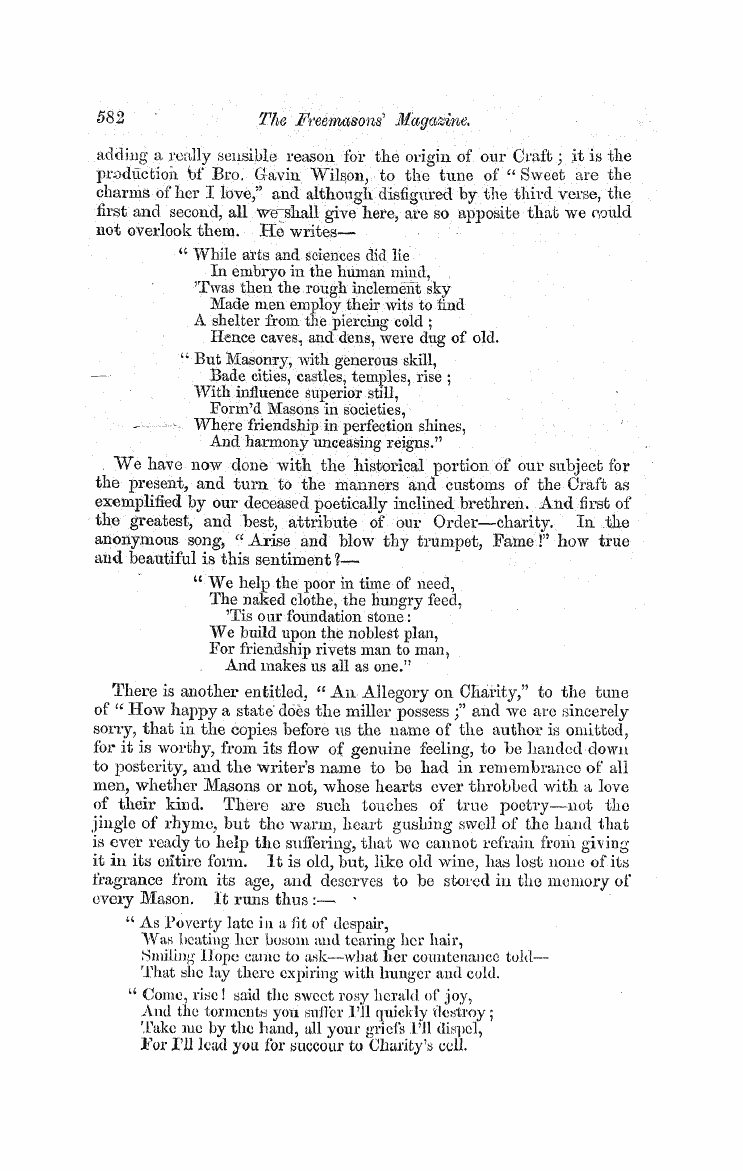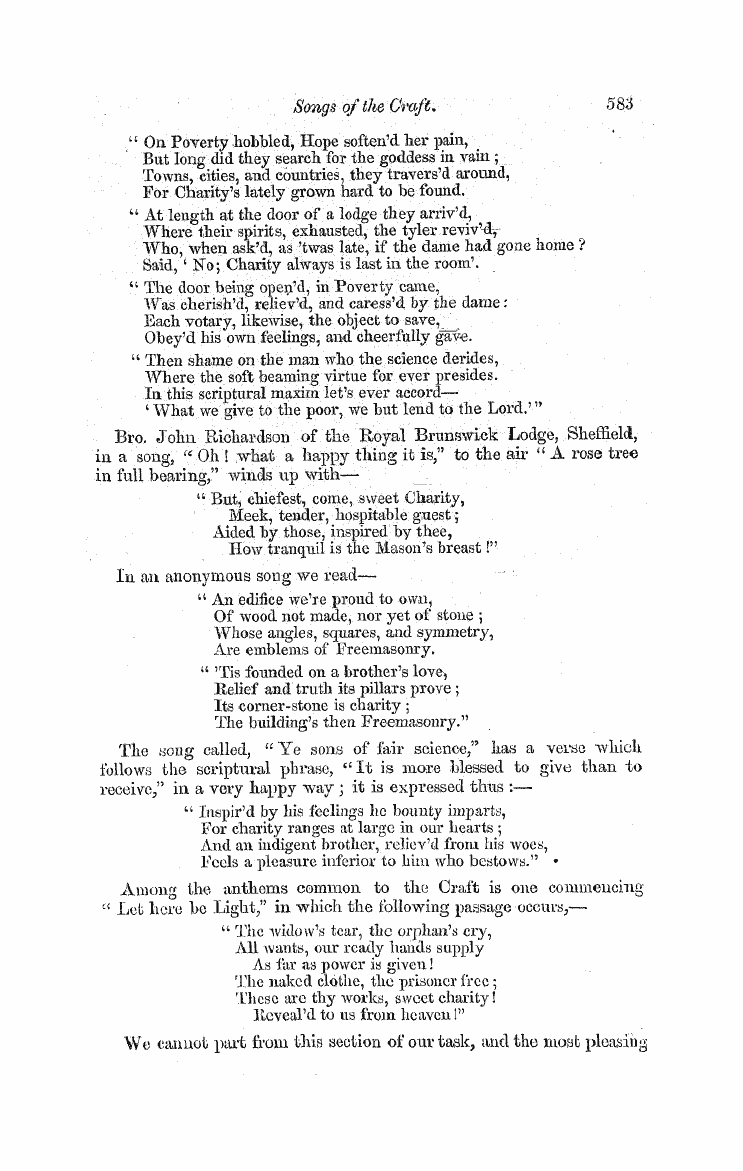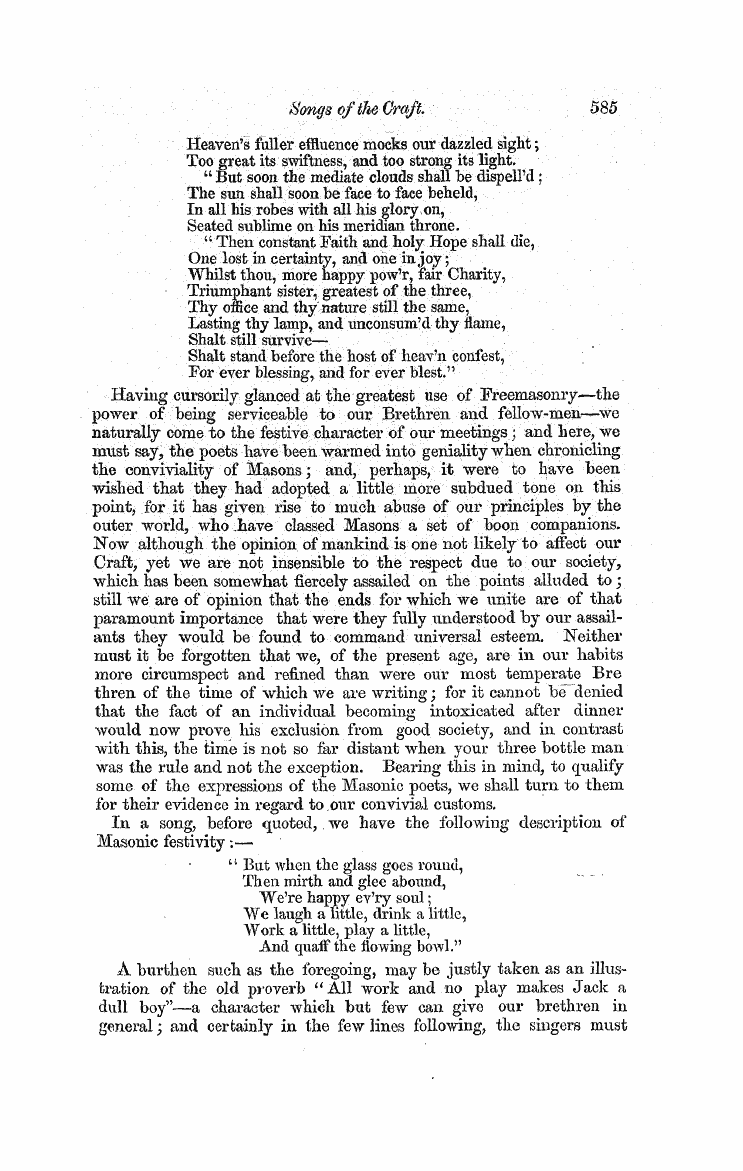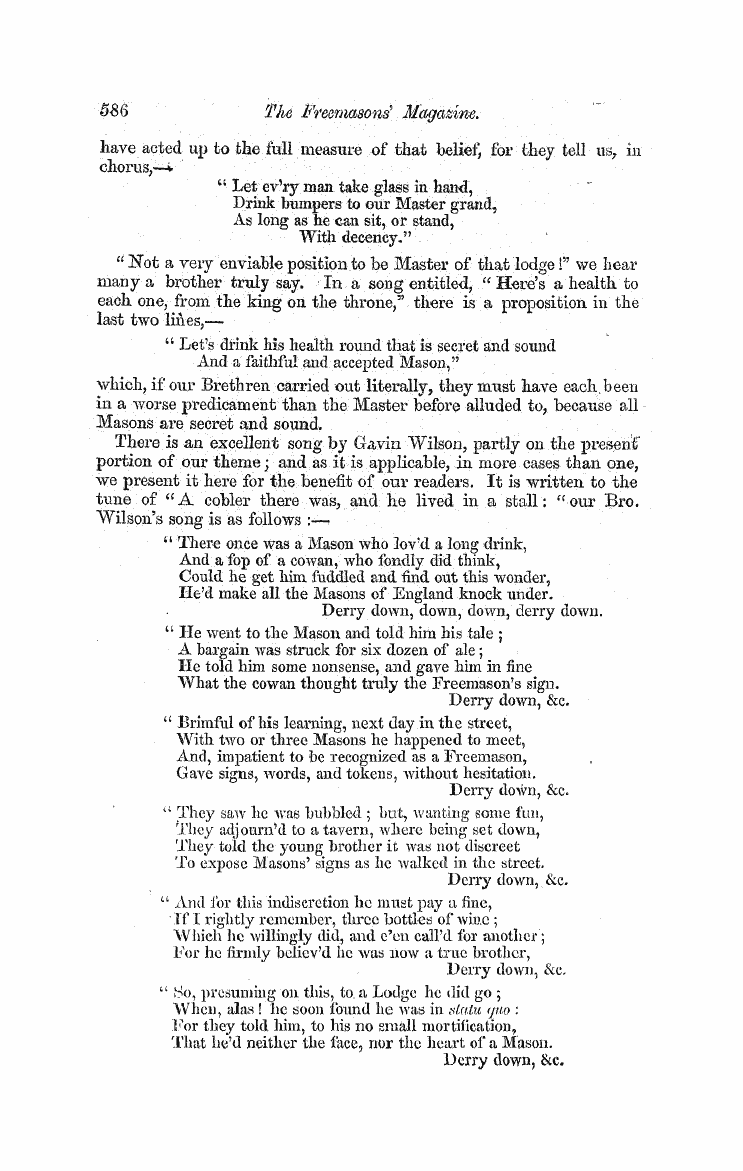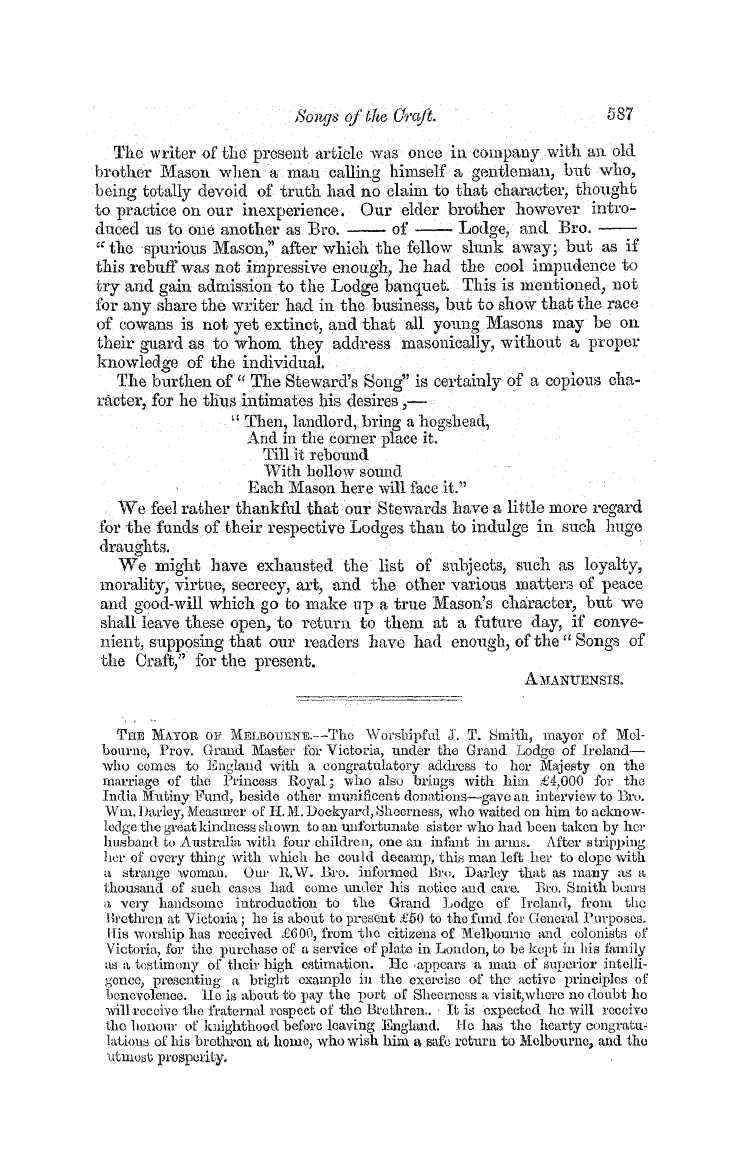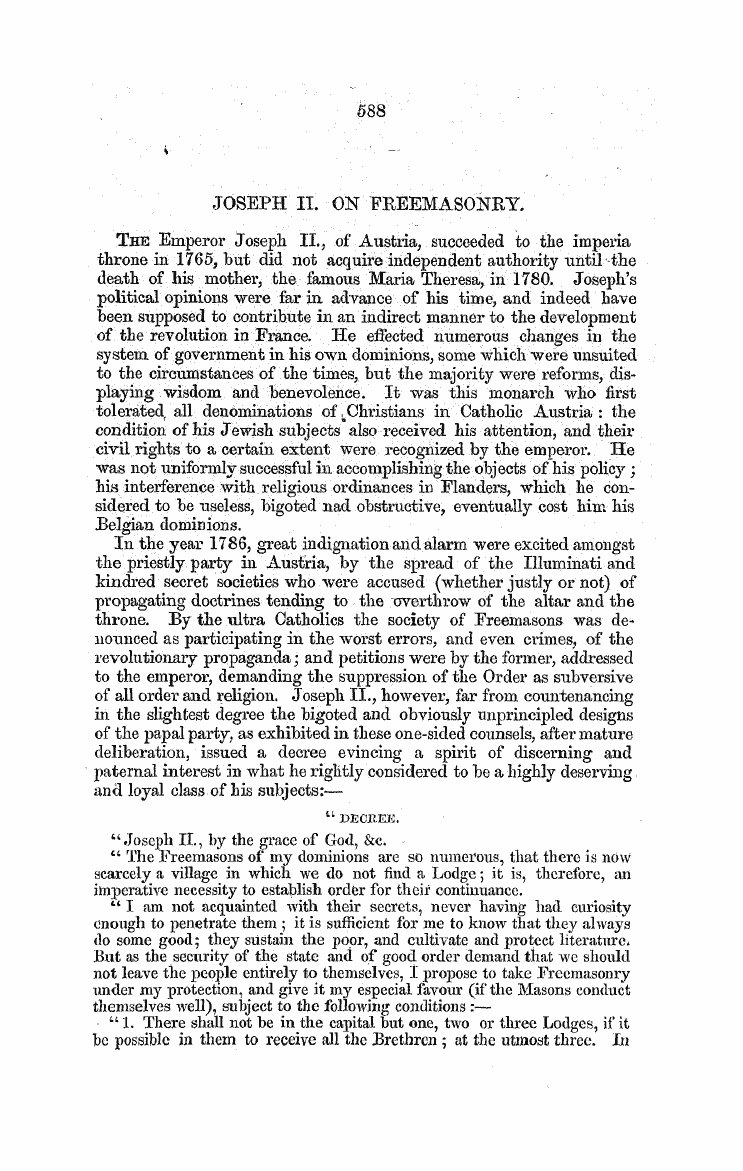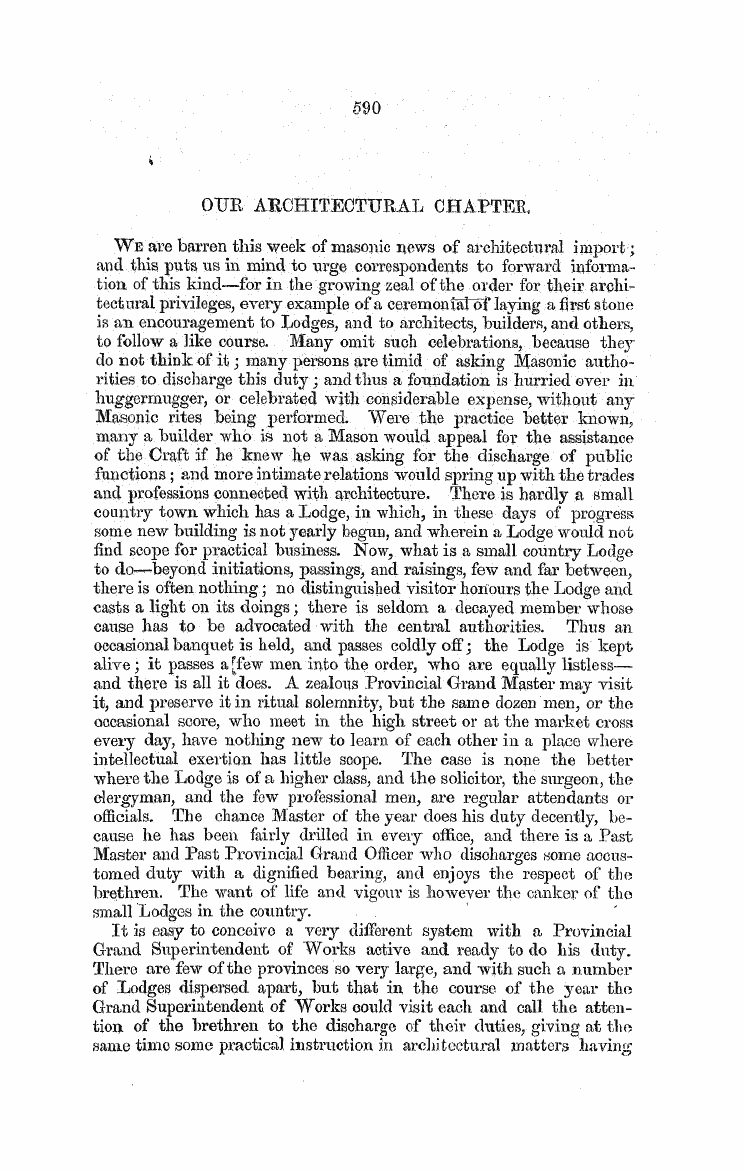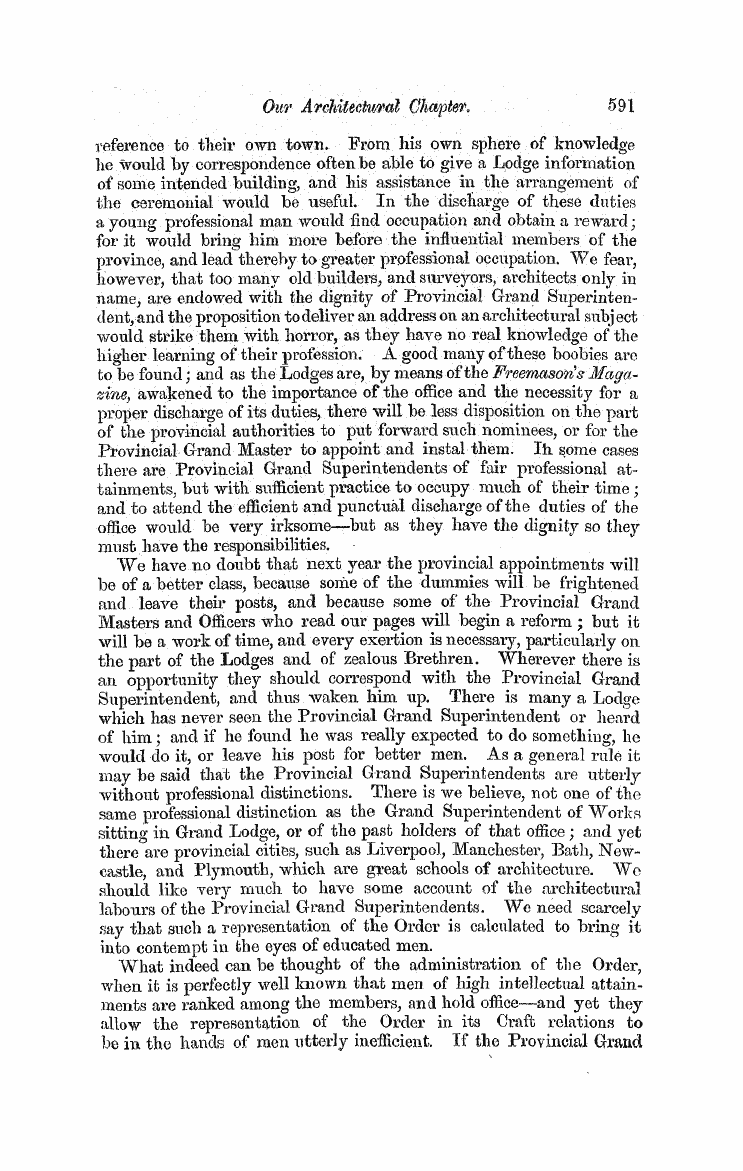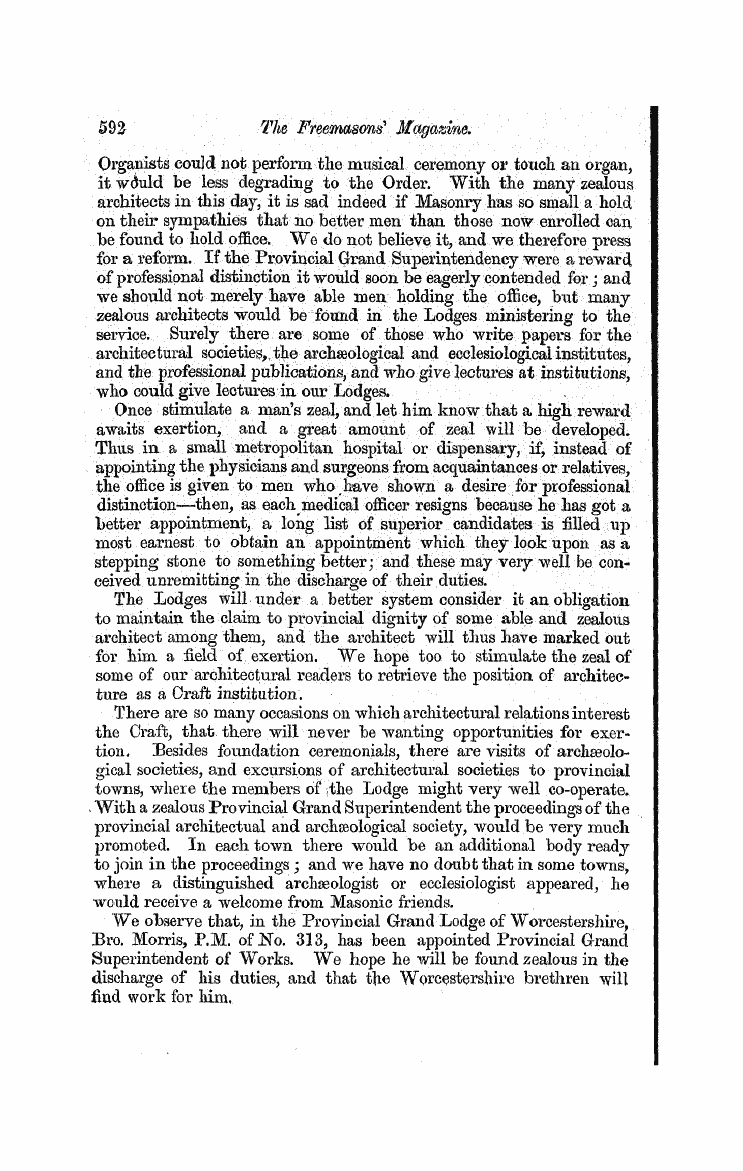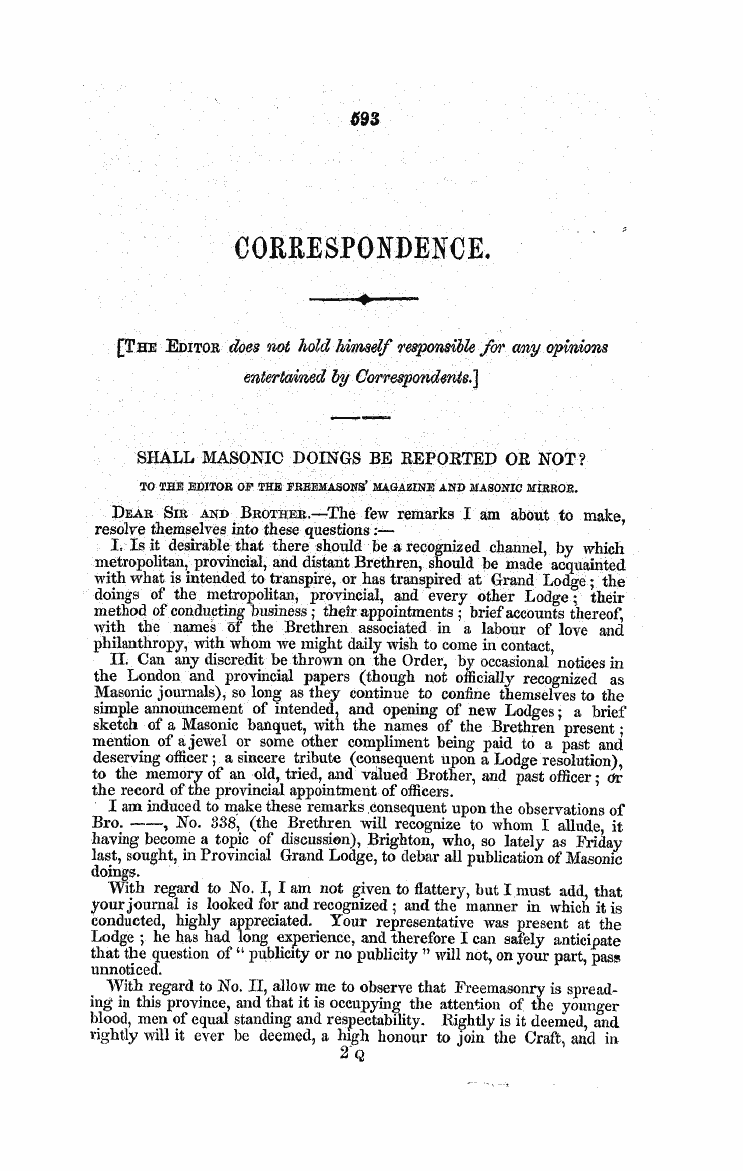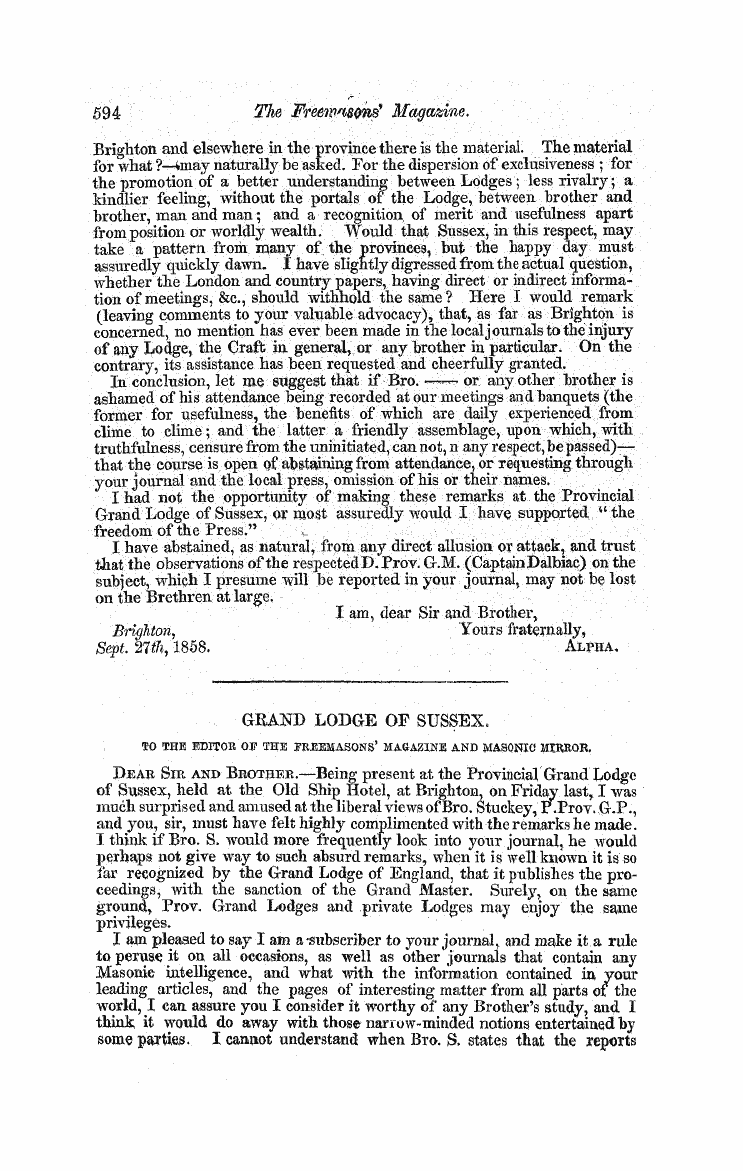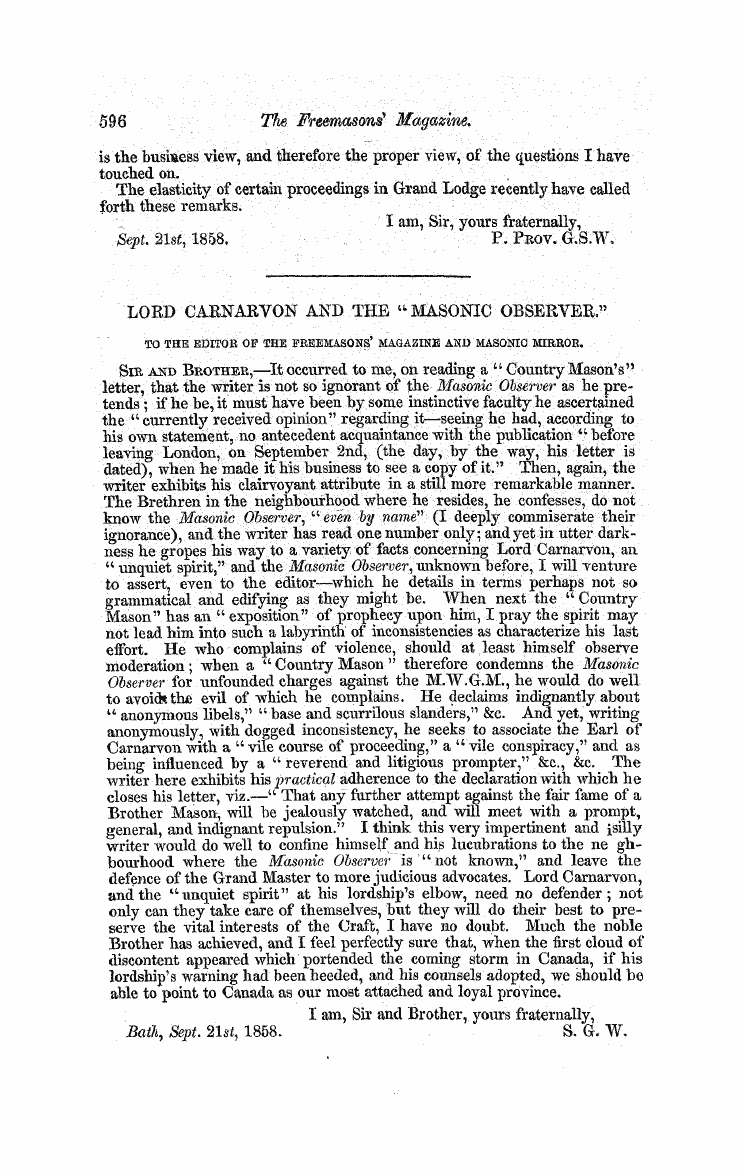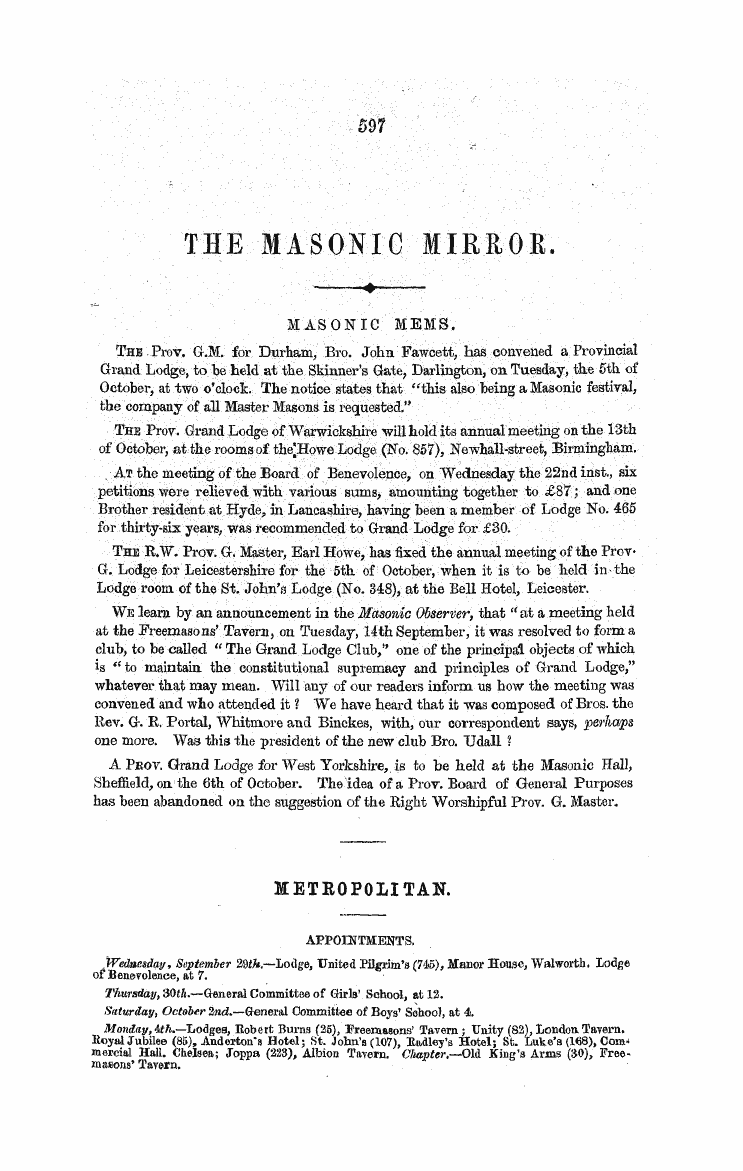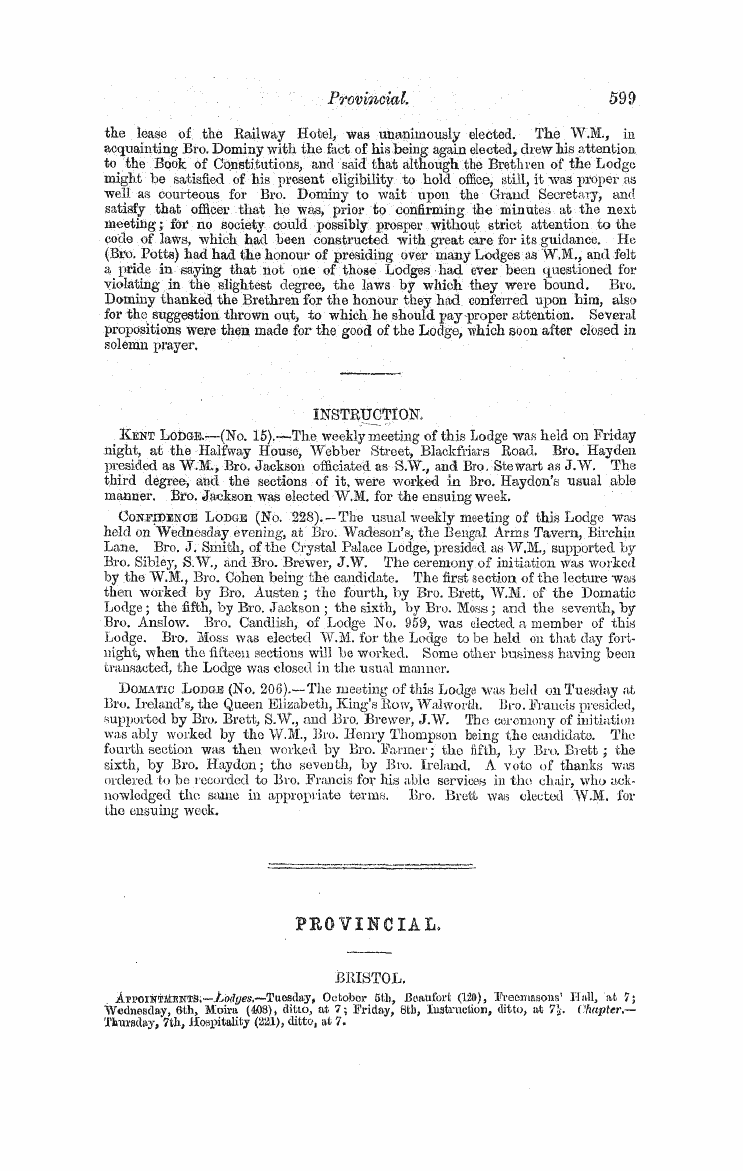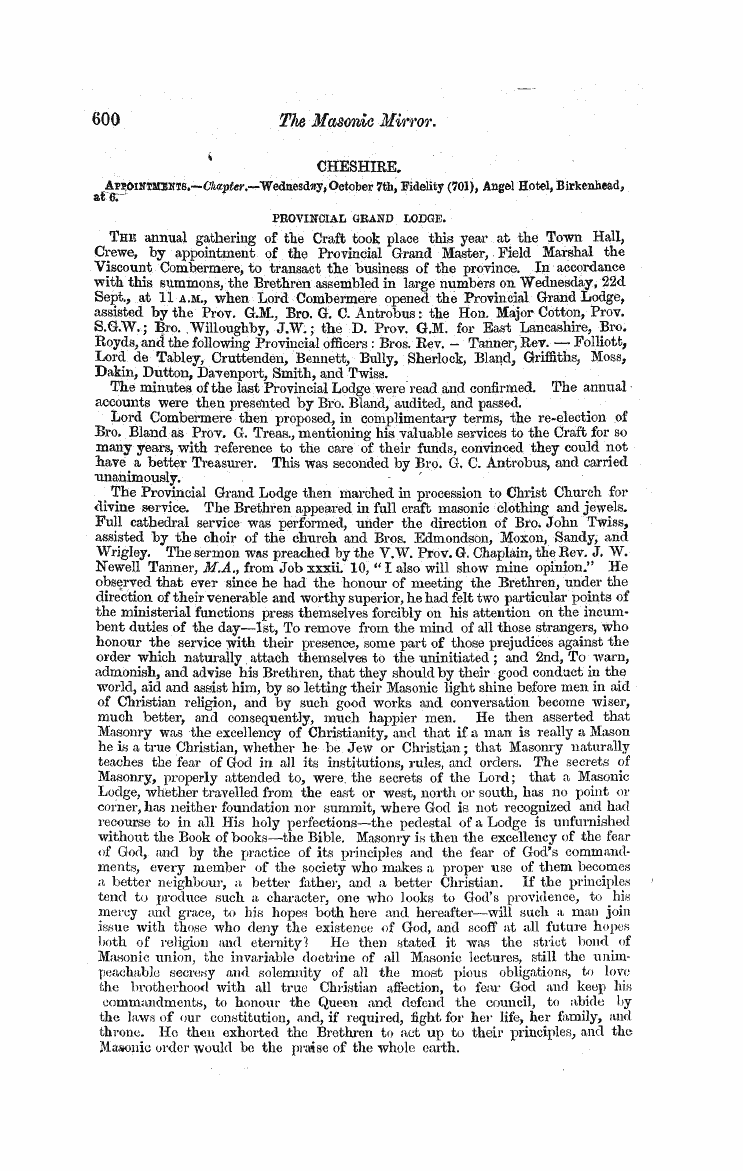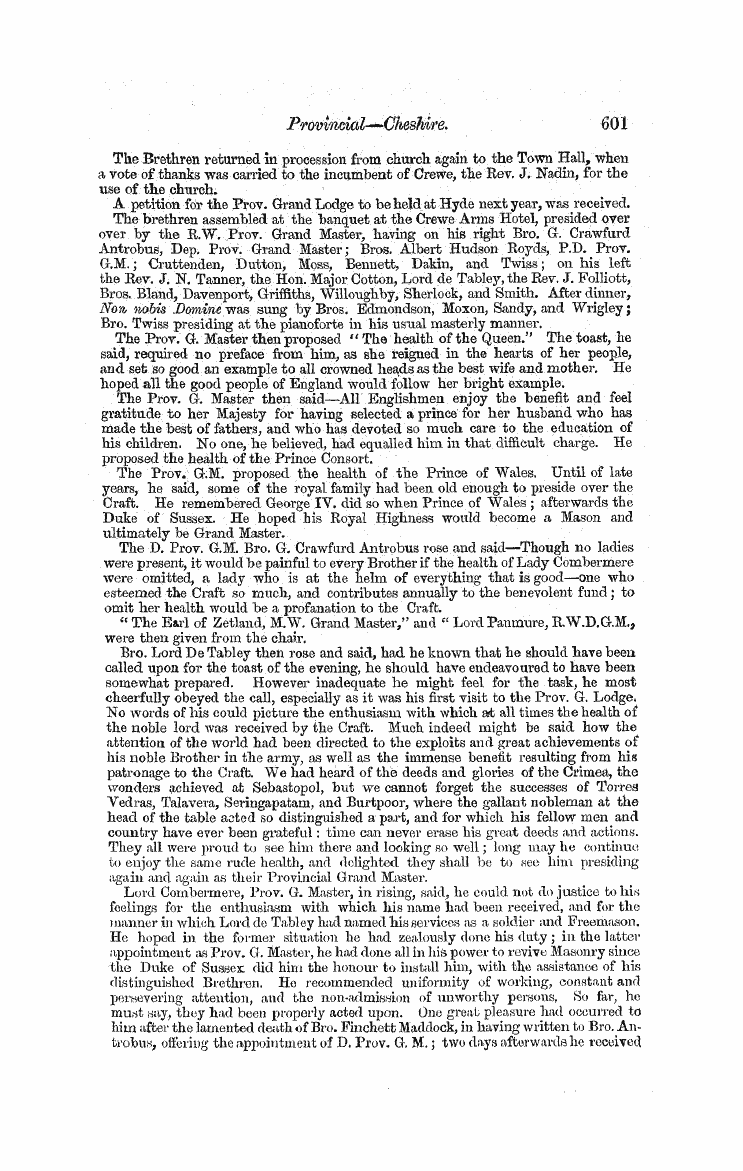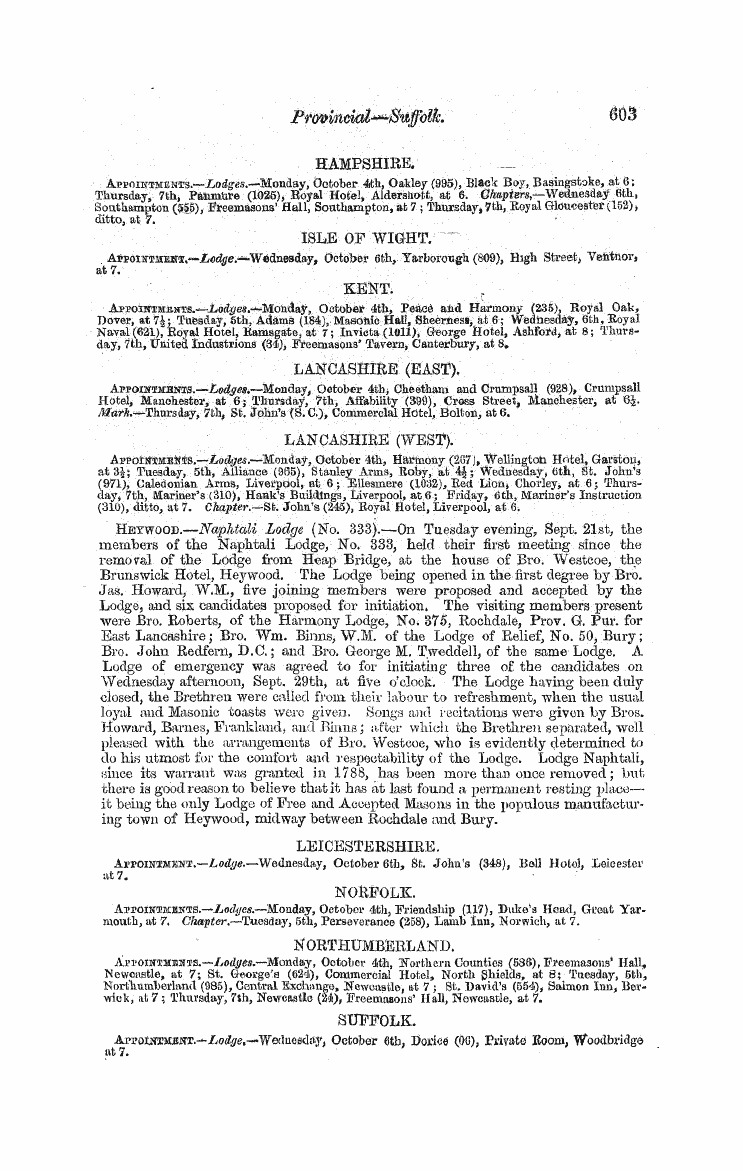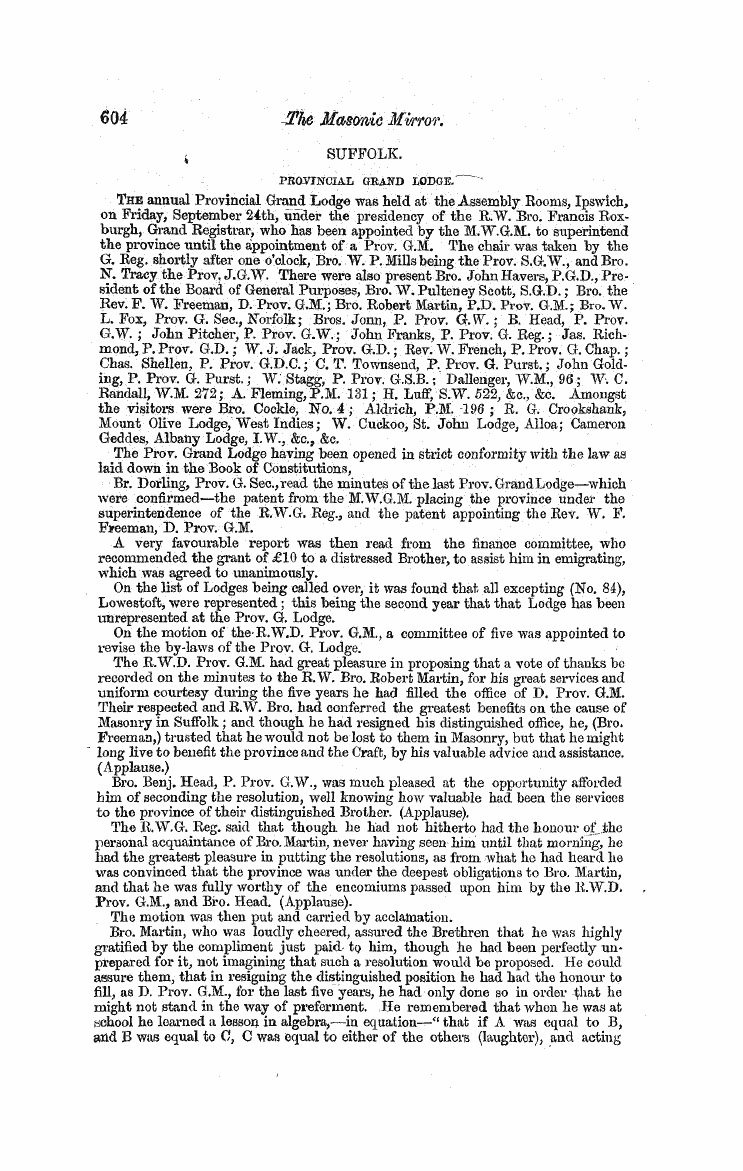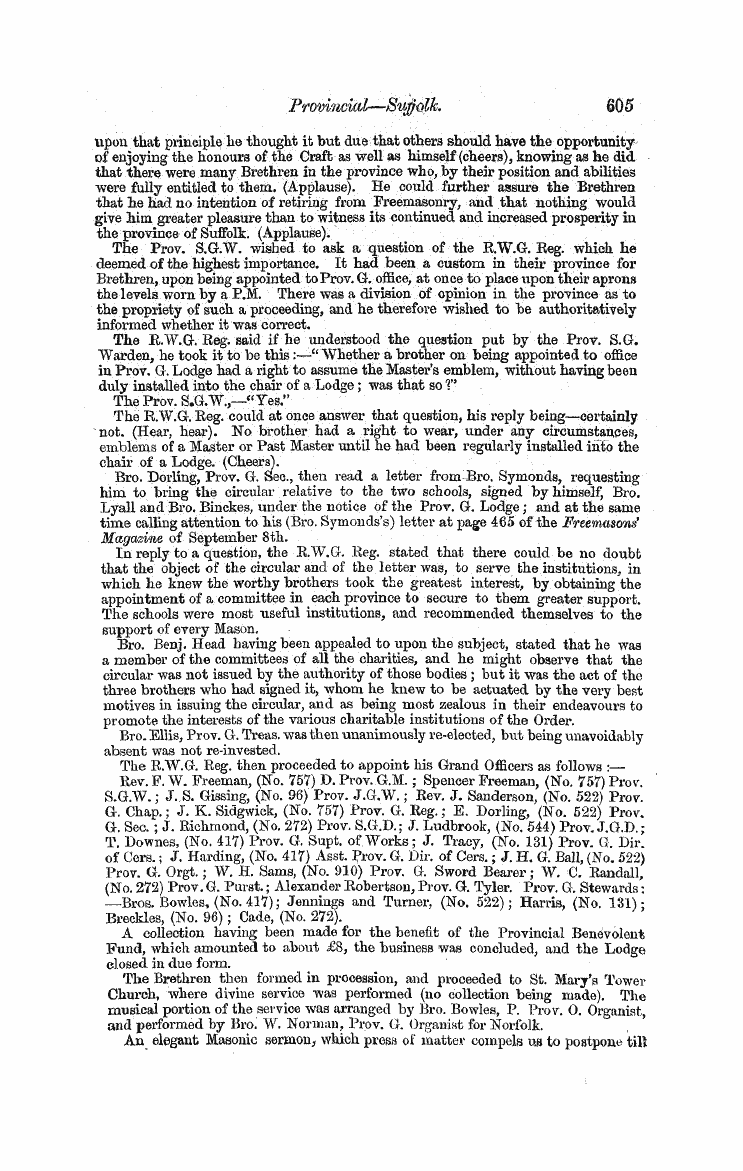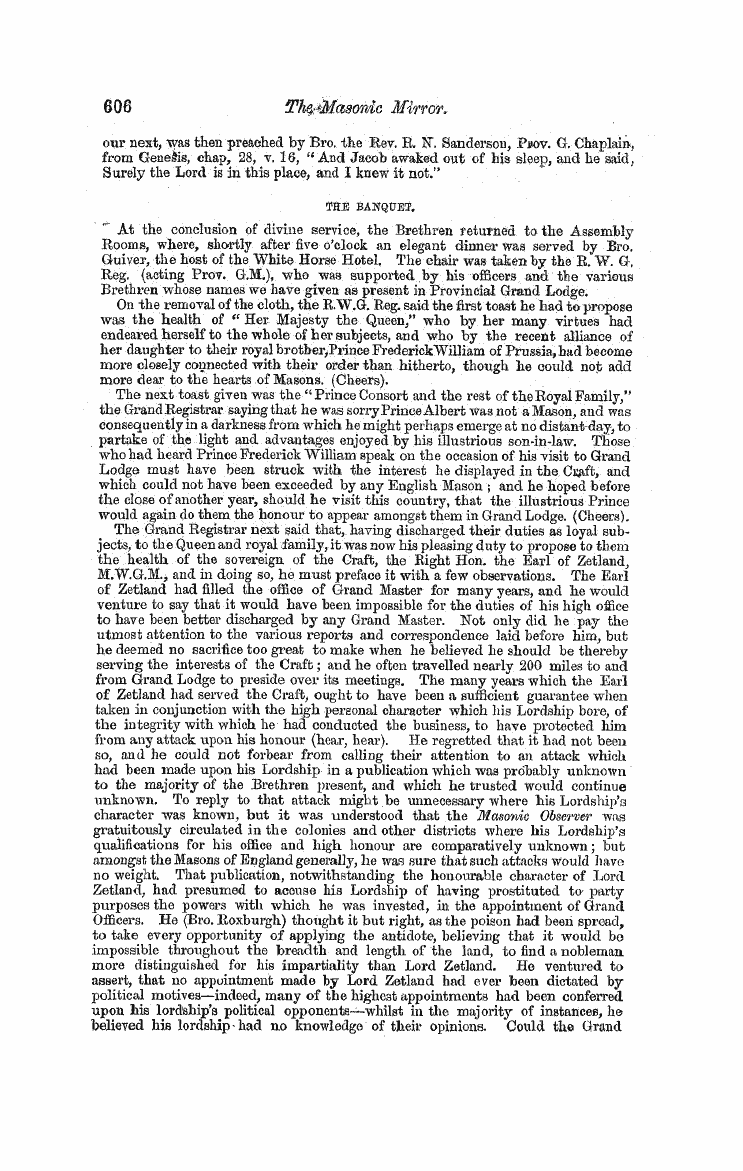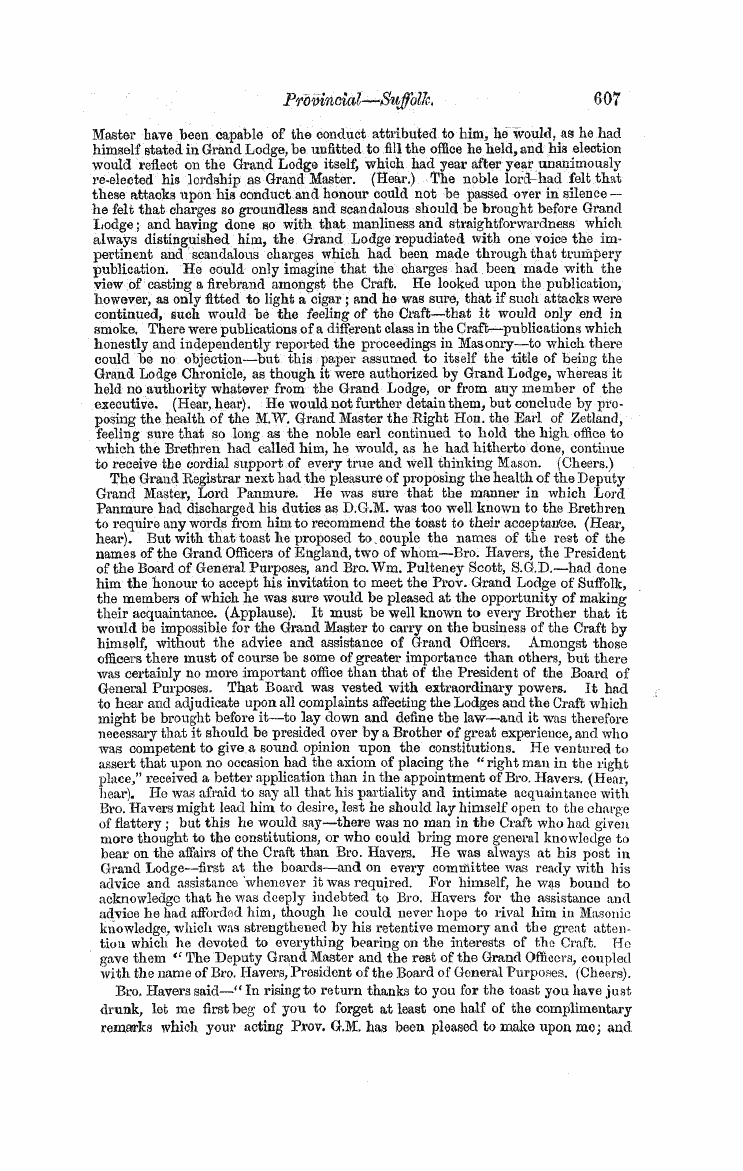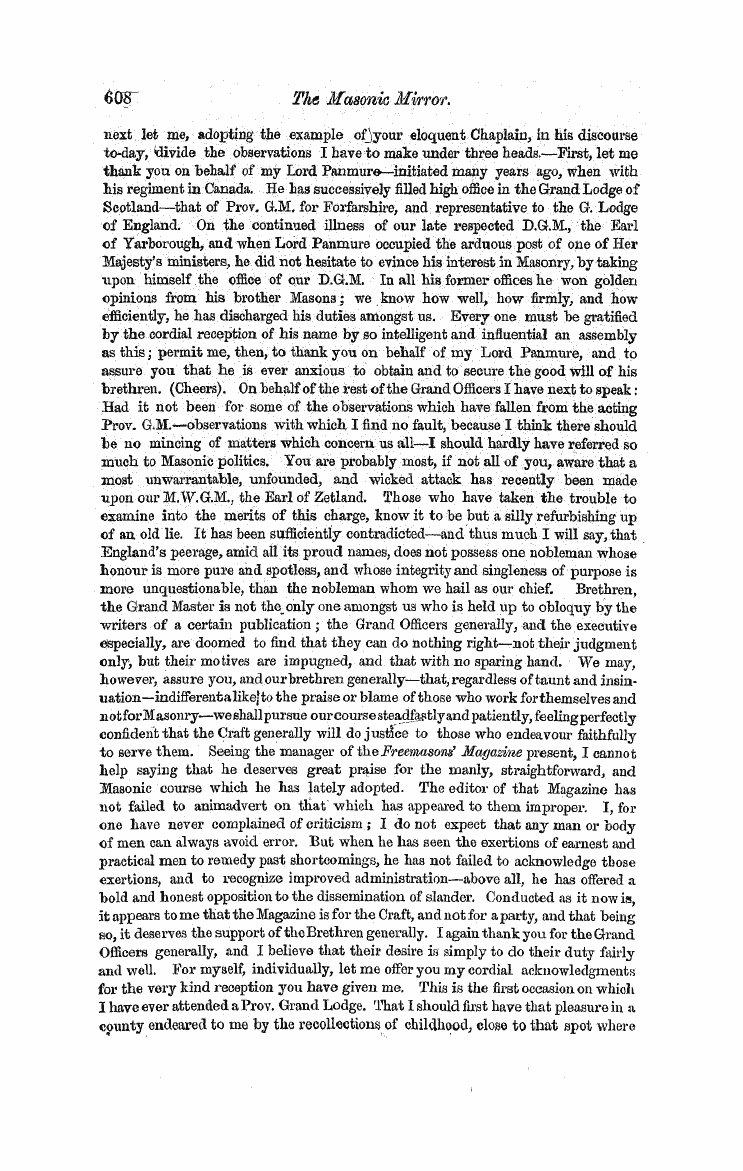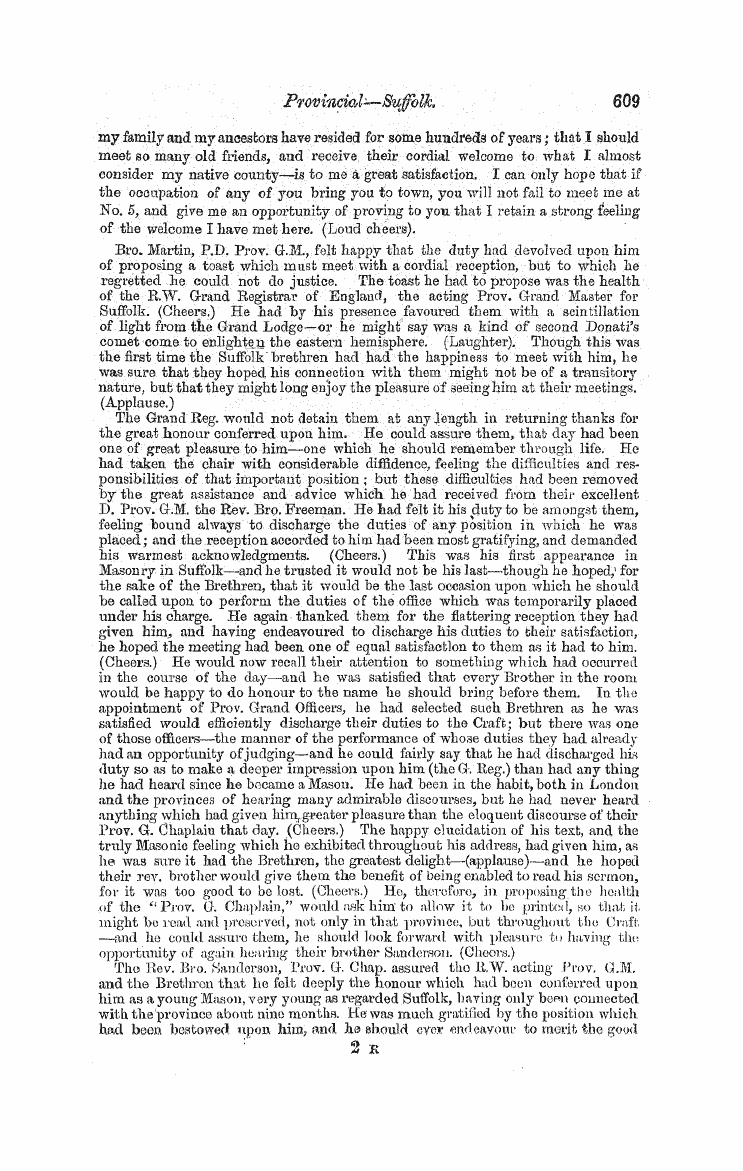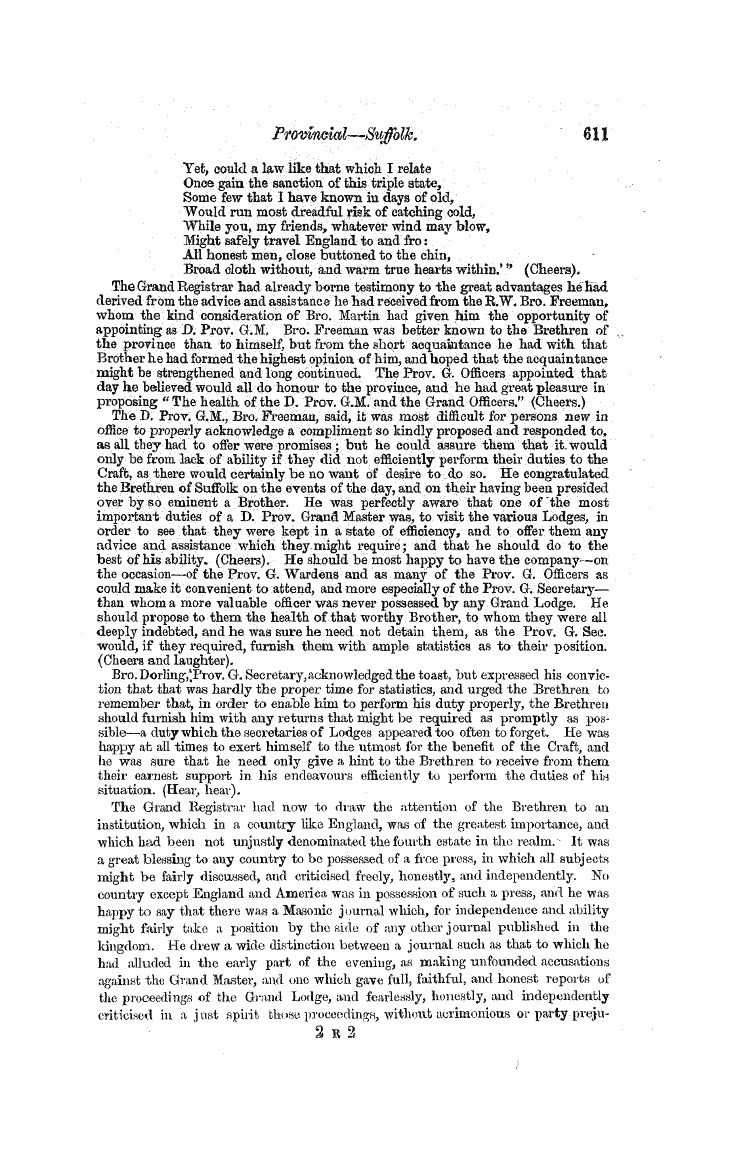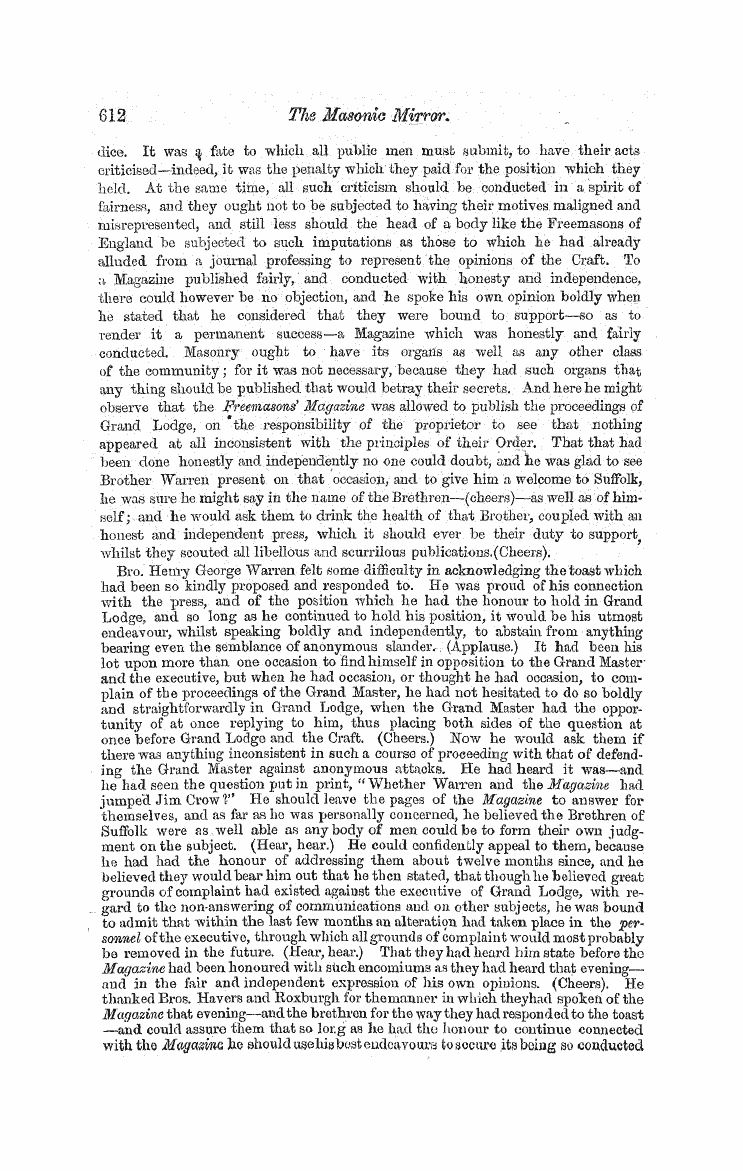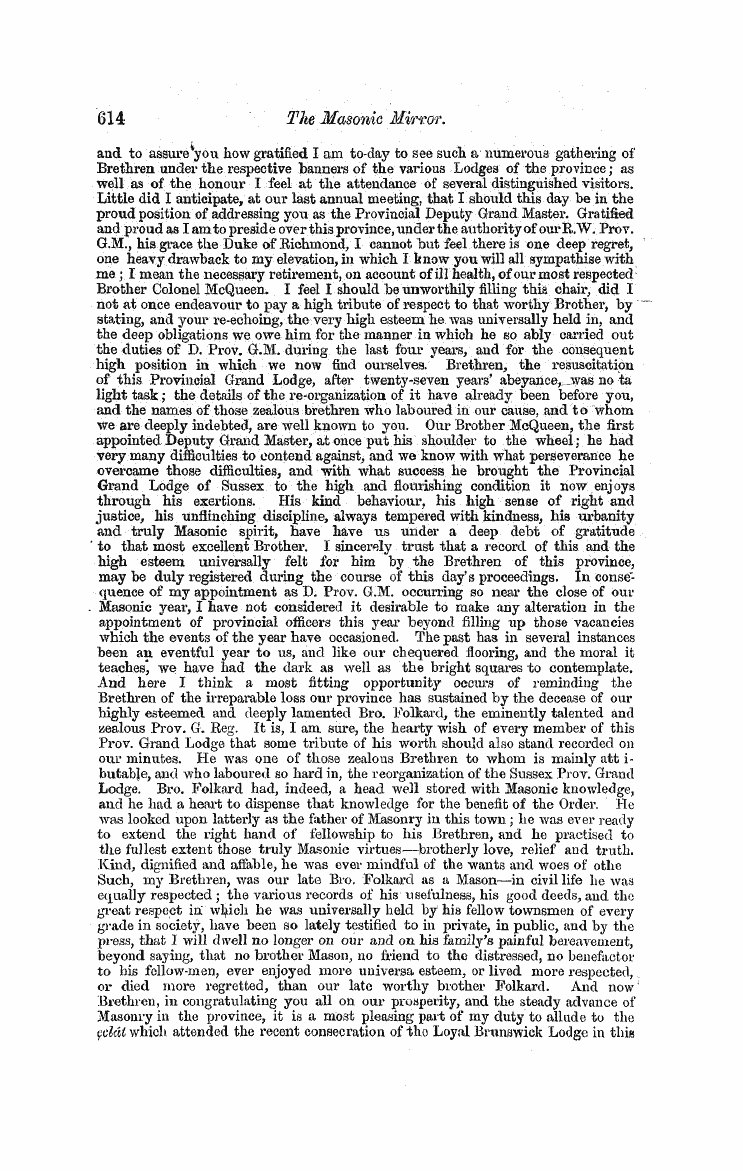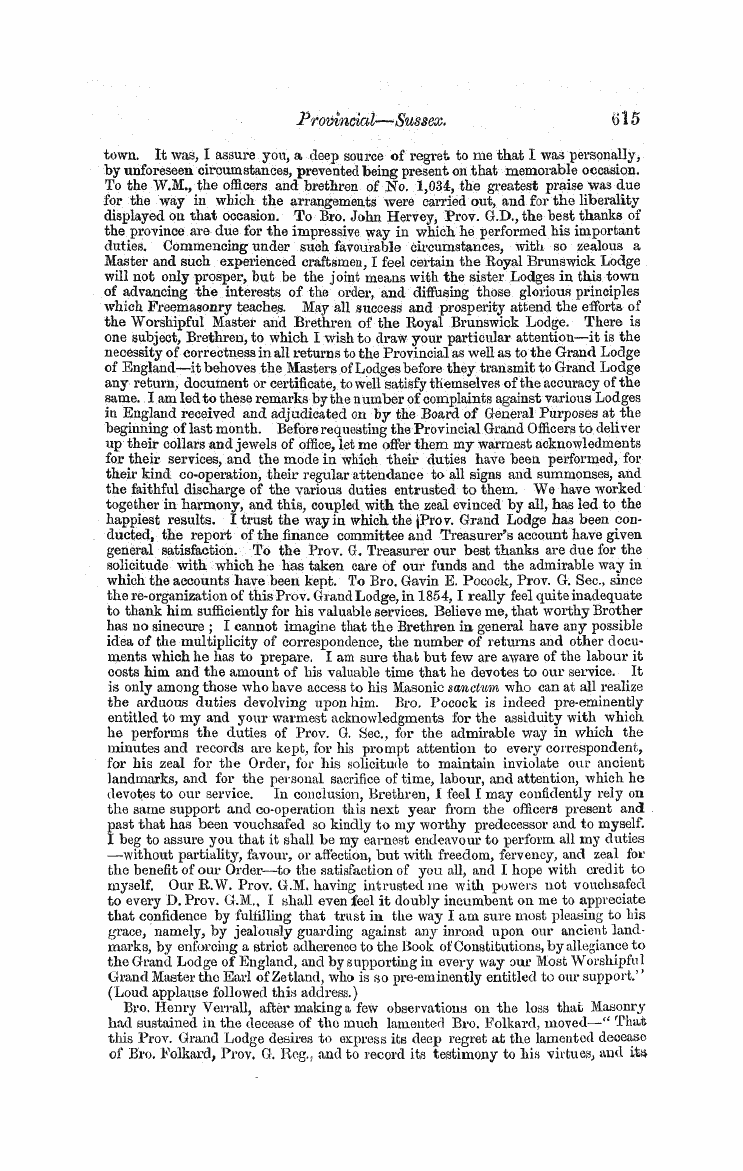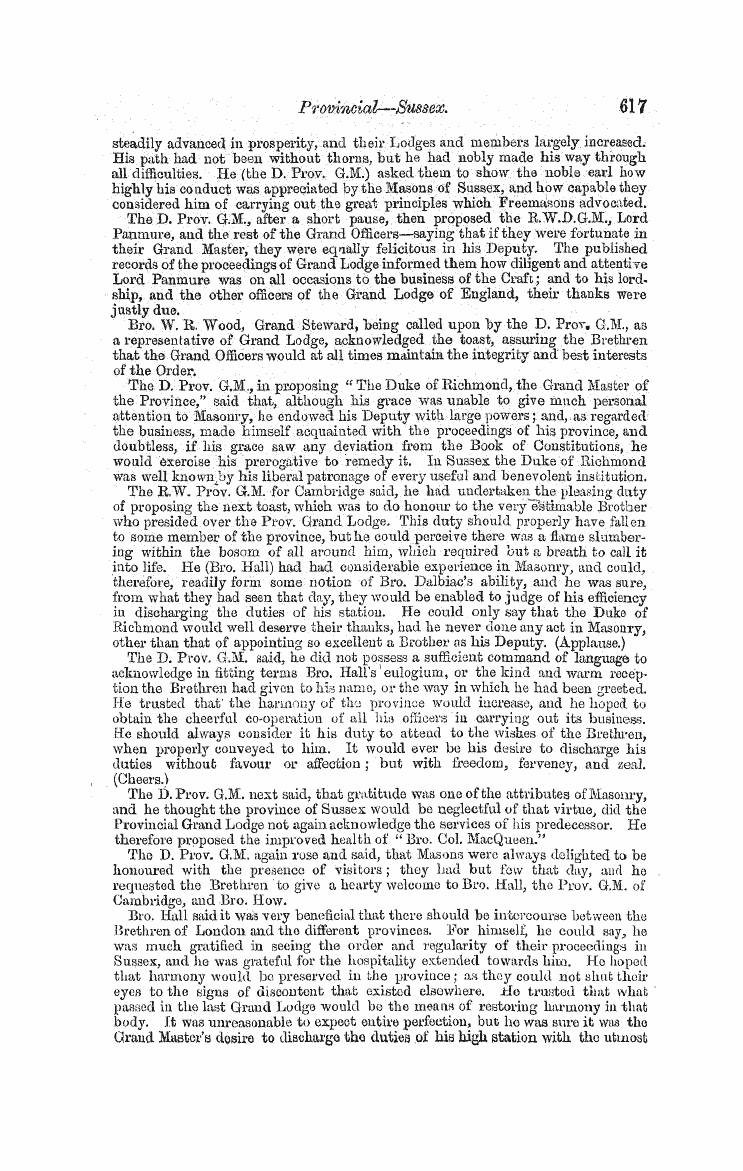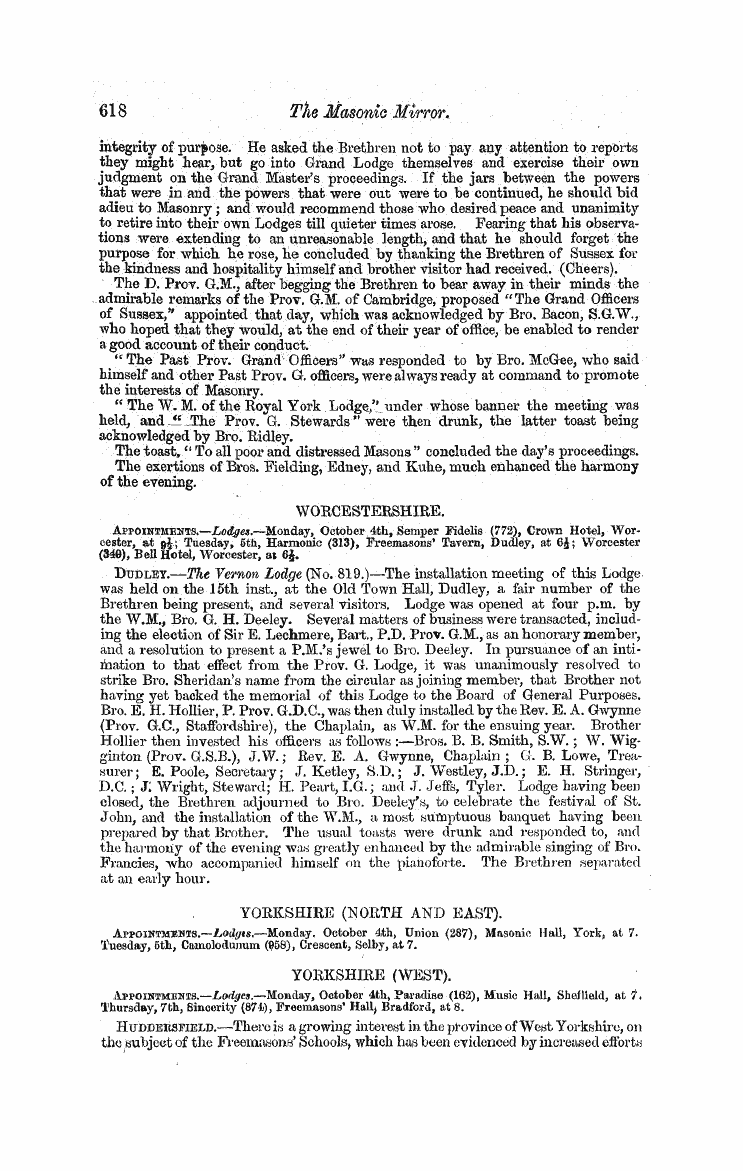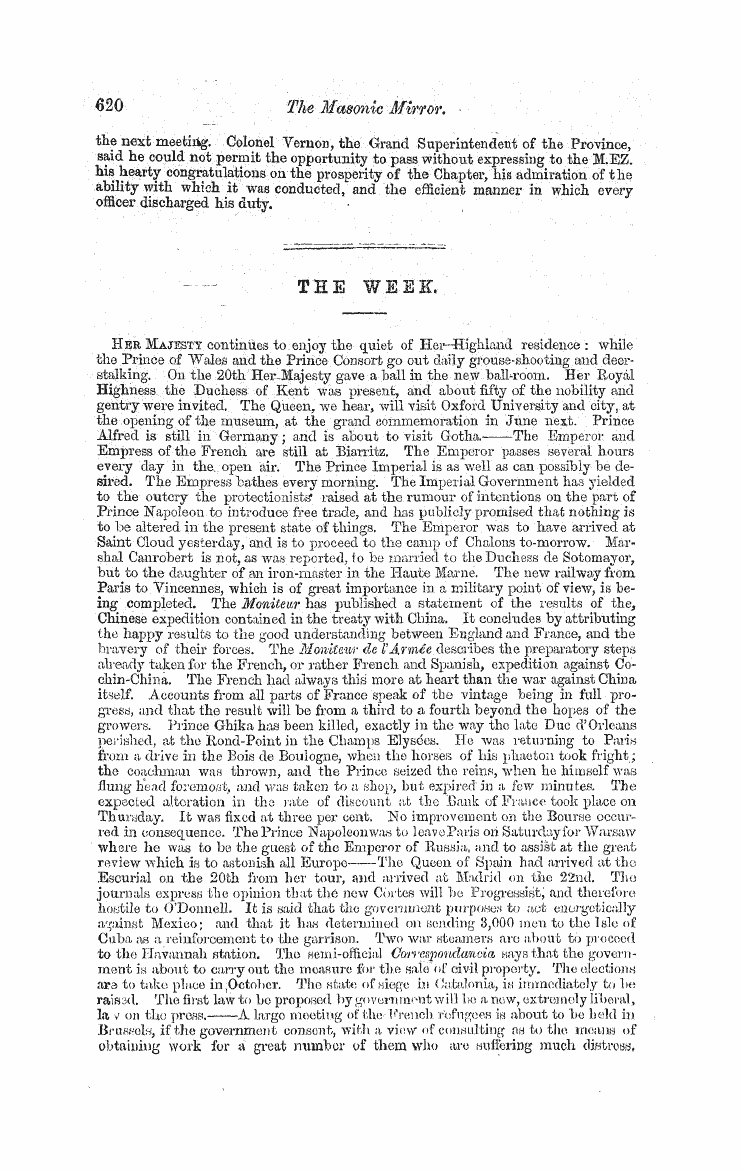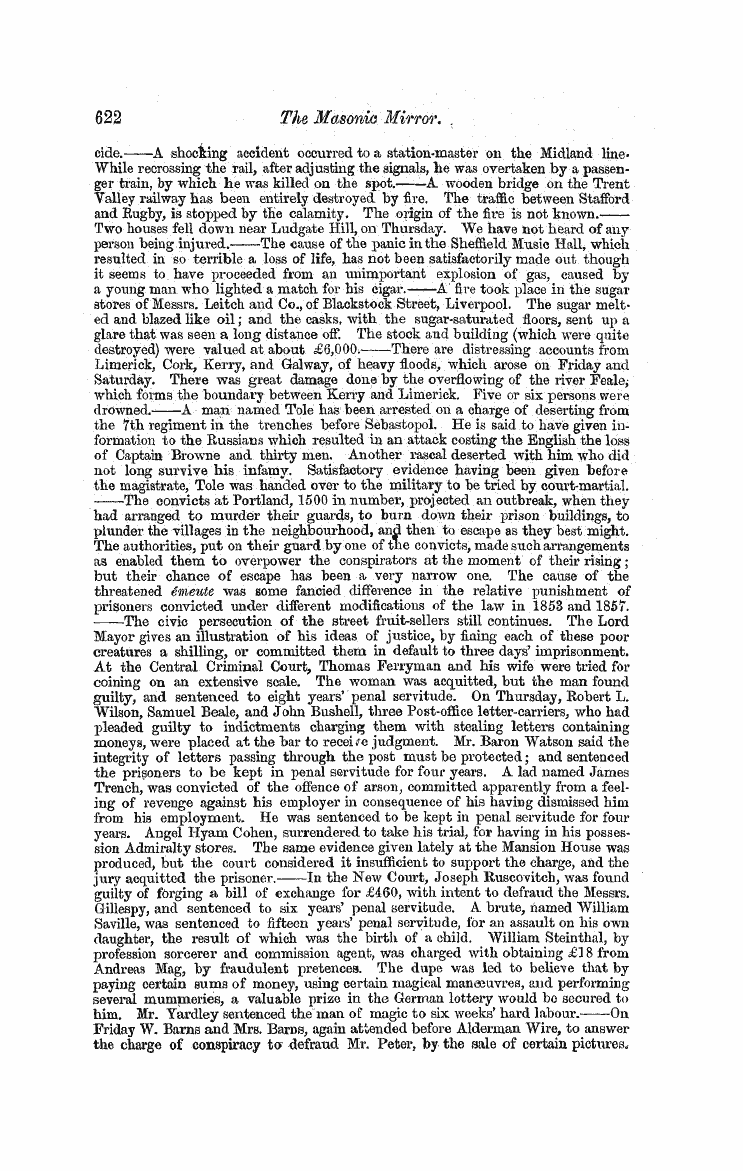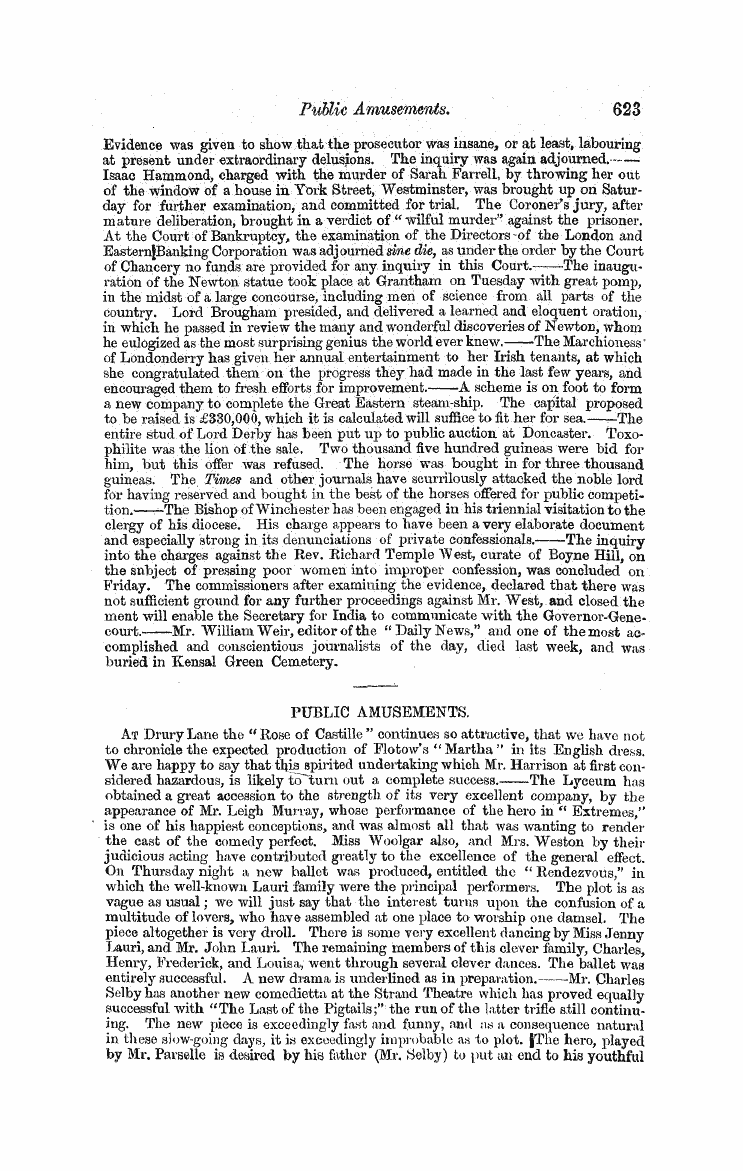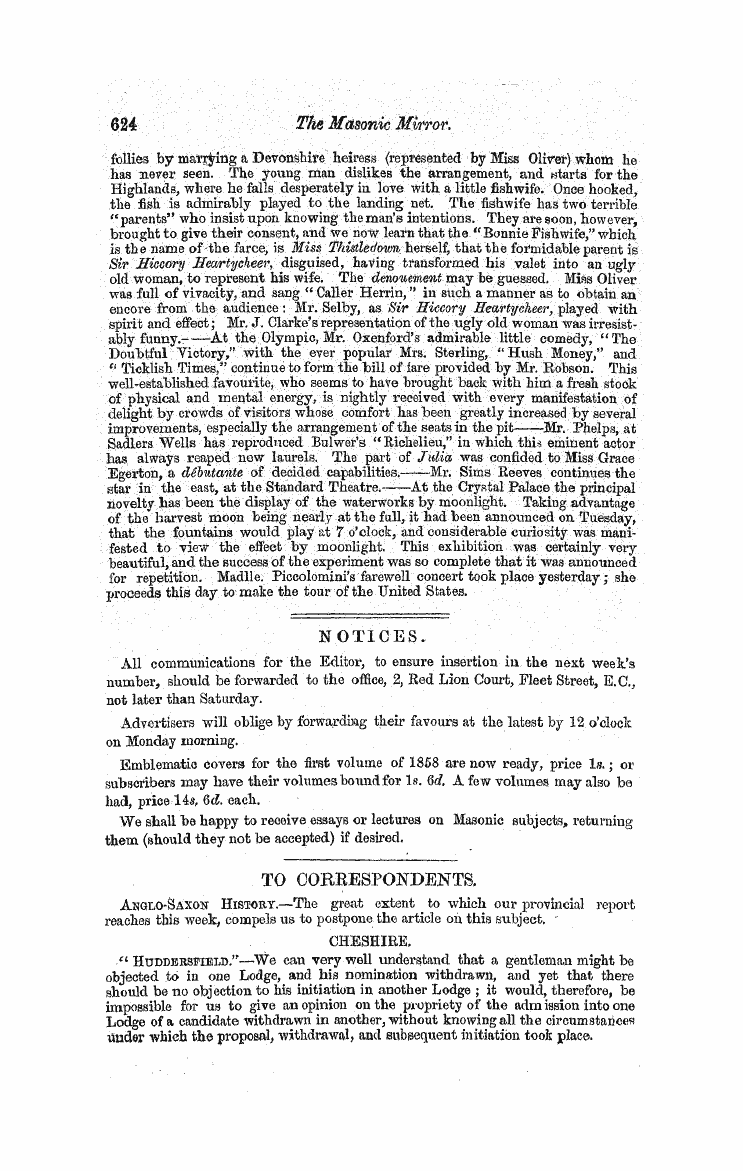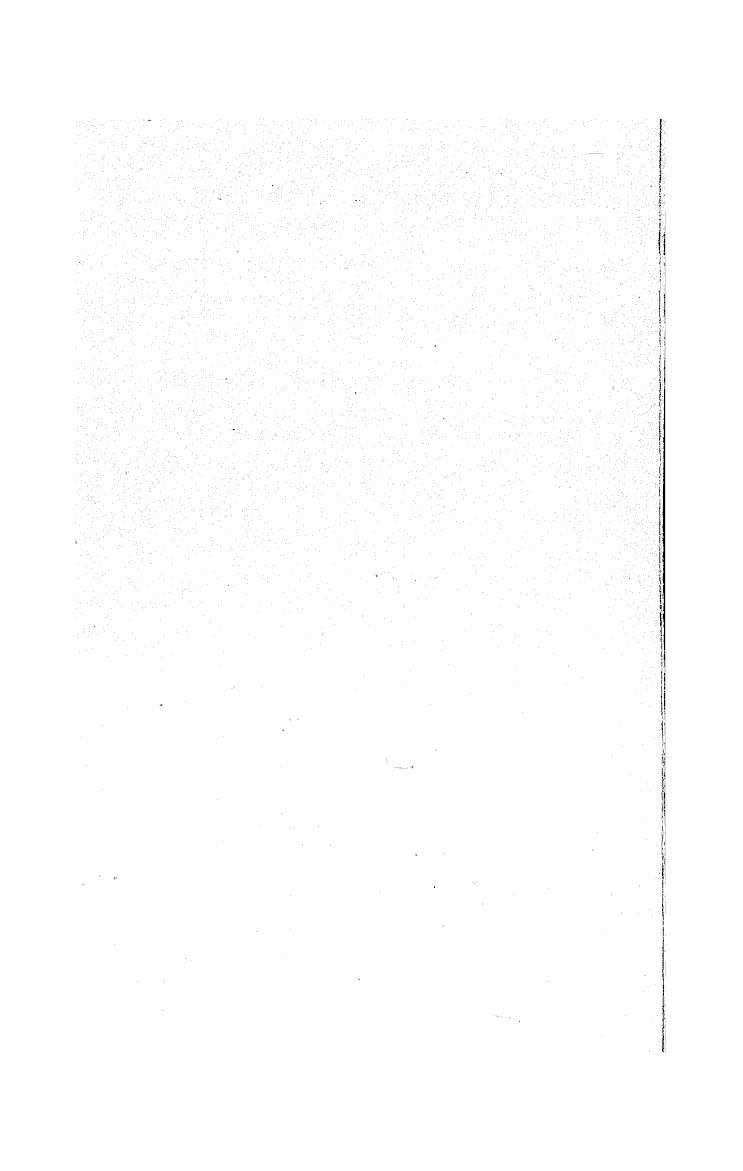-
Articles/Ads
Article THE SEGEEt SOOIEfM ← Page 6 of 10 →
Note: This text has been automatically extracted via Optical Character Recognition (OCR) software.
The Segeet Sooiefm
was to be preceded by three previous citations , at intervals of six weeks and three days . The first citation was made by two assessors ;
the second by four ; the third by six , accompanied by ^^ either when the accused was present at the tribunal , or at his own house , If he had no house in which he was known to dwell , or if he were charged with a crime punishable with death , and neither his house or dwelling place were known , he was <; interdicted' , at the
four quarters , to the east , south , west , and north , in a place where four high roads met . In early times , these assessors were usually persons of probity and intelligence j but afterwards , in many instances , men of low birth were admitted , who abused their powers , and took cognizance of crimes not amenable before the secret tribunal
The city of Dortmund was the principal seat of this tremendous court of justice , from whence other courts branched out in every direction , and once extended all over Germany . The archbishop of Cologne was the chief supervising officer , grand master , so to speak , of the Vehmique association ; the next in rank were the Siuhlkerren . f Each of these jStuMherr & z had his own
peculiar district , within which he had the power of erecting tribunals , and beyond which his power did not extend . On being appointed , he was to make oath that he would judge truly and justly according
to the laws and regulations of the Secret Tribunal , and that he would repair at least once in each year to the general chapter which was held somewhere within the territory of Westphalia , and give an account of the occurrences which had taken place within his district or jurisdiction . He either presided in person in his own court , or
lie could appoint a free count to supply his place . He could nominate either himself or any other person as count ; but if he nominated
any other person , he was obliged to certify on oath , on presenting him for investiture , that the person so presented was truly and honestly , both of father and mother , born on Westphalian ground ; that he stood in no ill repute ; that he knew of no open crimes that he had committed ; and that he believed him to he perfectly well qualified to preside over the county .
The income of a free count arose from fees , and a share in fines . He had also a fixed allowance in money or in kind from the Stuhlherr , Each Frei-schbpfe or assessor who was admitted made him a present , to repair , as the laws express it , his countly hat . If the person admitted were a knight , this fee was in gold ; if not , a mark of silver . Every one of the initiated who cleared himself by oath from any
charge , paid the count a cross penny . He had a share of all the fines imposed in his court , and a fee on citations , & c ., & c . There was in general but one count to each tribunal j but instances occur of there being as many as seven or eight . The count usually presided in the court , and the citations of the accused were by him * The next in rank to the free counts were the assessors , or t $ ohopfen 0 f Tribunal lords , or literally lords of the seat ( of judgment ); stuhl ( Anglice , stool ) , being a Beat , or chair .
Note: This text has been automatically extracted via Optical Character Recognition (OCR) software.
The Segeet Sooiefm
was to be preceded by three previous citations , at intervals of six weeks and three days . The first citation was made by two assessors ;
the second by four ; the third by six , accompanied by ^^ either when the accused was present at the tribunal , or at his own house , If he had no house in which he was known to dwell , or if he were charged with a crime punishable with death , and neither his house or dwelling place were known , he was <; interdicted' , at the
four quarters , to the east , south , west , and north , in a place where four high roads met . In early times , these assessors were usually persons of probity and intelligence j but afterwards , in many instances , men of low birth were admitted , who abused their powers , and took cognizance of crimes not amenable before the secret tribunal
The city of Dortmund was the principal seat of this tremendous court of justice , from whence other courts branched out in every direction , and once extended all over Germany . The archbishop of Cologne was the chief supervising officer , grand master , so to speak , of the Vehmique association ; the next in rank were the Siuhlkerren . f Each of these jStuMherr & z had his own
peculiar district , within which he had the power of erecting tribunals , and beyond which his power did not extend . On being appointed , he was to make oath that he would judge truly and justly according
to the laws and regulations of the Secret Tribunal , and that he would repair at least once in each year to the general chapter which was held somewhere within the territory of Westphalia , and give an account of the occurrences which had taken place within his district or jurisdiction . He either presided in person in his own court , or
lie could appoint a free count to supply his place . He could nominate either himself or any other person as count ; but if he nominated
any other person , he was obliged to certify on oath , on presenting him for investiture , that the person so presented was truly and honestly , both of father and mother , born on Westphalian ground ; that he stood in no ill repute ; that he knew of no open crimes that he had committed ; and that he believed him to he perfectly well qualified to preside over the county .
The income of a free count arose from fees , and a share in fines . He had also a fixed allowance in money or in kind from the Stuhlherr , Each Frei-schbpfe or assessor who was admitted made him a present , to repair , as the laws express it , his countly hat . If the person admitted were a knight , this fee was in gold ; if not , a mark of silver . Every one of the initiated who cleared himself by oath from any
charge , paid the count a cross penny . He had a share of all the fines imposed in his court , and a fee on citations , & c ., & c . There was in general but one count to each tribunal j but instances occur of there being as many as seven or eight . The count usually presided in the court , and the citations of the accused were by him * The next in rank to the free counts were the assessors , or t $ ohopfen 0 f Tribunal lords , or literally lords of the seat ( of judgment ); stuhl ( Anglice , stool ) , being a Beat , or chair .































































































































































































